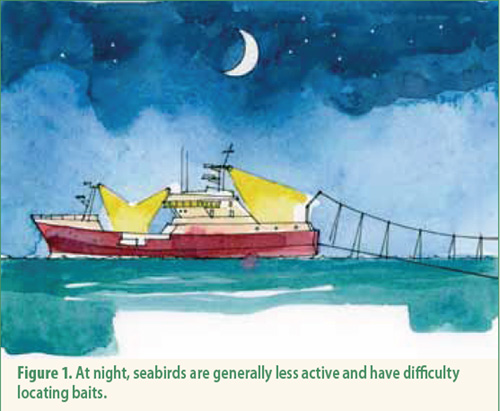The Albatross and Petrel Agreement’s Executive Secretary, Warren Papworth will attend meetings of two Regional Fisheries Management Organizations that regulate tuna fisheries (tRFMOs) in the Federated States of Micronesia and in Australia over the next two months. The two meetings are the:
Ninth Regular Session of the Scientific Committee, Western and Central Pacific Fisheries Commission (WCPFC), Pohnpei, Federated States of Micronesia, 6-14 August 2013
and the
10th Meeting of the Ecologically Related Species Working Group, Commission for the Conservation of Southern Bluefin Tuna (CCSBT), Canberra, Australia, 28-31 September.
As agreed at the recent meeting of ACAP’s Advisory Committee (AC7), a key focus of ACAP’s work in the tRFMOs in coming years will be on the implementation of their respective seabird conservation measures. The collection of additional data that can be used to assess the effectiveness of the mitigation measures being used, as well as identifying bycatch levels, will be a high priority.
In this regard, at the WCPFC meeting ACAP will present a paper on Electronic Monitoring of Seabird Bycatch that recommends that the WCPFC actively promotes the use of e-monitoring in its pelagic longline fisheries where there is a known overlap of seabird distribution with fishing effort; undertakes a study to identify the most effective deployment of cameras for capturing seabird bycatch events, and develops protocols for the analysis of e-monitoring data relating to seabird bycatch.
The WCPFC meeting will also consider a Progress Report on the Development of a Seabird Identification Guide for use by tRFMOs and several other working and information papers on seabird issues as follows:
Overlap between WCPFC longline fishing effort and albatross distribution in the North Pacific

At the CCSBT meeting ACAP will provide updated information on the seabirds likely to be caught by Southern Bluefin Tuna fisheries, including population status summaries and recent reviews of mitigations measures (click here for the meeting’s provisional agenda). Note that CCSBT working and information papers are not in the public domain.
It is expected that ACAP will be represented at meetings of three other tuna RFMOs later during the course of 2013: information will be posted as it becomes available.
John Cooper, ACAP Information Officer & Warren Papworth, Executive Secretary, 2 August 2013

 English
English  Français
Français  Español
Español